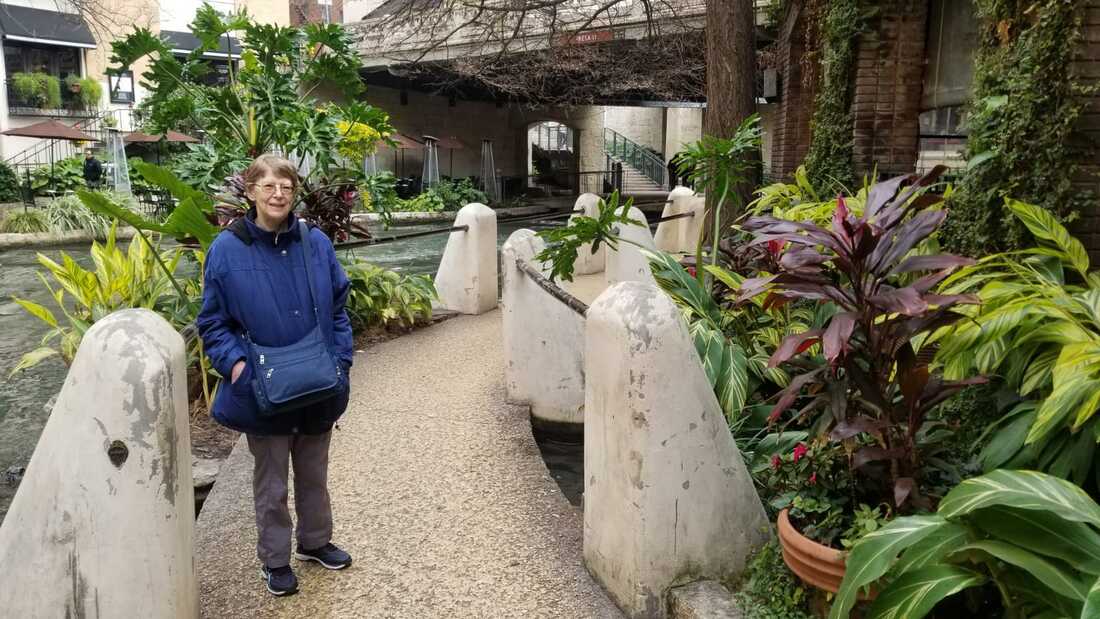|
Greens and browns bring gentle interest to San Antonio’s River Walk, where I soaked up winter sunshine last week. How could you not keep going to discover what’s around the bend?
Humans want to understand and to explore, both what’s in plain sight and what may lie ahead. Environmental psychologists Rachel and Stephen Kaplan say the landscapes that delight us—natural or designed—share four qualities:
Their framework fits more than landscapes. South Texas history and culture linked visits to the Alamo, the Mexican market, the presidio captain’s house, Spanish missions, and the Witte Museum (coherence), with easy access on foot or by bus (legibility), diverse sights and activities (complexity), and plenty to learn and discover (mystery). Now I’m home, with a life that’s orderly and navigable, varied and filled with surprises. I think the Kaplans got it right.
2 Comments
Two or three times a year, someone tells me, “You know that everyone in your dream is you.” Says who, besides Carl Jung? Do night sweats running around a retirement home in my bathrobe looking for my demented mother always reflect fear of dementia? Granted, random dream figures can stimulate insights as effectively as tarot cards or tea leaves. We are the meaning makers, and new perspectives invite us to fresh meaning.
In writing, on the other hand, to some degree every character is the author. How can you make responses authentic except by putting yourself in the characters’ heads, or them in yours? The same goes for reading. A child who becomes Pooh in imagination, then Piglet, then Eeyore or Tigger learns empathy. Mirror neurons don’t so much put us in someone else’s head as create an image of their intention in ours. In that sense, one might argue, you are everyone you see or imagine, including the characters in your dreams. The stranger on the Appalachian Trail was as dirty and unkempt as most serious hikers, the ones who hadn’t just come out for an afternoon. He looked as though he hadn’t shaved in a month. He was wearing faded blue jeans and a University of West Virginia sweatshirt.
The author lost me right there. I grew up on and around the West Virginia University campus. The Mountaineers played and studied at WVU, never UWV. Never mind that the guy on the trail was a minor character, his sweatshirt of no significance except to make his image more vivid. An author who mistakes West Virginia University for the University of West Virginia is not one I can trust. What does it mean for fiction to be credible, when it’s untrue by definition? Willing suspension of disbelief takes collaboration between reader and author. The reader consents to think of fictional people, places, and things as real, to care what becomes of folks who don’t even exist, to accept the presence of a street or town that’s not on any map outside the book’s covers. The author avoids jarring that suspension out of place with stilted dialogue, glaring anachronisms, or behaviors that feel unnatural in the context of the story. Had the University of West Virginia been a major setting of the novel, located not in Morgantown but in a fictional canyon beset by mayhem unrelated to any real school, I might have kept my disbelief suspended. It was the very insignificance of the name on the sweatshirt that made it come across as carelessness rather than intention. If the author can’t even get that right, why should I go along with anything else? In his autobiographical Permanent Record, Edward Snowden’s joy in the freewheeling, anarchic Internet of the 1990s strikes a surprising chord. Born earlier and no techie, I recall the same youthful thrill of trying on different selves where nobody knew who I was.
In summer camps far from home, I could play at being whoever I wished and none of it would follow me home. Going out of state for college allowed another fresh start. We students were all exploring, testing ideas by trial and error, with no shame in saying something stupid one day and rescinding it the next. In my twenties, moves every year or two offered a series of chances to reinvent. Only my immediate family gave continuity, and they didn’t try to box me in. Though by my thirties I found relationships in community at least as liberating as serial anonymity, later life events renewed the freedom—and the need—to recreate who I wanted to be. Isn’t this the best of both worlds? A few close kith or kin who not only know you deeply, but also encourage you to experiment, change, and grow. |
AuthorI'm a historian who writes novels and literary nonfiction. My home base is Madison, Wisconsin. Archives
July 2024
|

 RSS Feed
RSS Feed